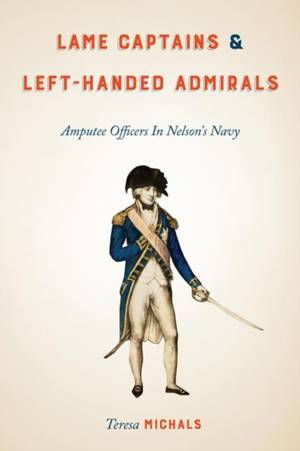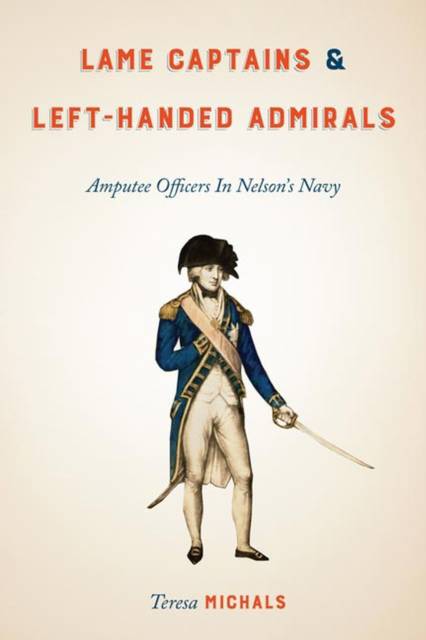
- Retrait gratuit dans votre magasin Club
- 7.000.000 titres dans notre catalogue
- Payer en toute sécurité
- Toujours un magasin près de chez vous
- Retrait gratuit dans votre magasin Club
- 7.000.000 titres dans notre catalogue
- Payer en toute sécurité
- Toujours un magasin près de chez vous
Description
Throughout the Revolutionary and Napoleonic Wars, the Royal Navy had a peculiar problem: it had too many talented and ambitious officers, all competing for a limited number of command positions. Given this surplus, we might expect that a major physical impairment would automatically disqualify an officer from consideration. To the contrary, after the loss of a limb, at least twenty-six such officers reached the rank of commander or higher through continued service. Losing a limb in battle often became a mark of honor, one that a hero and his friends could use to increase his chances of winning further employment at sea.
Lame Captains and Left-Handed Admirals focuses on the lives and careers of four particularly distinguished officers who returned to sea and continued to fight and win battles after losing an arm or a leg: the famous admiral Lord Horatio Nelson, who fought all of his most historically significant battles after he lost his right arm and the sight in one eye, and his lesser-known fellow amputee admirals, Sir Michael Seymour, Sir Watkin Owen Pell, and Sir James Alexander Gordon. Their stories shed invaluable light on the historical effects of physical impairment and this underexamined aspect of maritime history.
Peculiar Bodies: Stories and Histories
Spécifications
Parties prenantes
- Auteur(s) :
- Editeur:
Contenu
- Nombre de pages :
- 288
- Langue:
- Anglais
- Collection :
Caractéristiques
- EAN:
- 9780813946726
- Date de parution :
- 16-11-21
- Format:
- Livre relié
- Format numérique:
- Genaaid
- Dimensions :
- 152 mm x 229 mm
- Poids :
- 594 g







